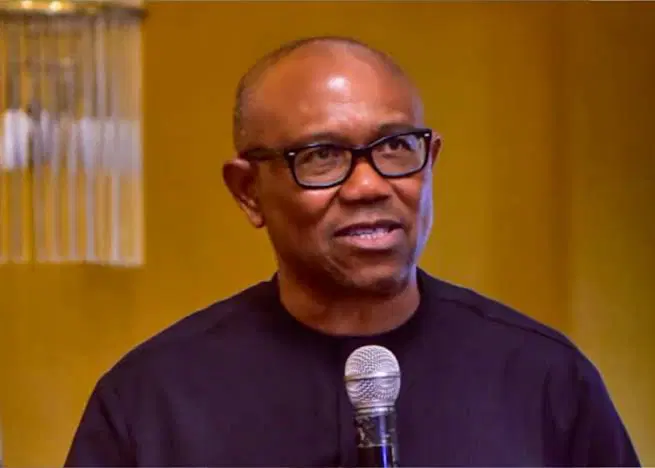In a move to address circulating narratives about his past, Peter Obi, the Labour Party’s 2023 presidential candidate, has provided detailed clarification regarding his interaction with the late military ruler General Sani Abacha during Nigeria’s authoritarian era. The former Anambra governor released an official statement titled “Our Engagement with General Abacha: Setting the Record Straight,” accompanied by documentary evidence to support his account.
Obi explained that his encounter with Abacha was strictly non-political and occurred within the context of his role as a private sector stakeholder. At the time, he was co-opted—alongside other traders and importers—into the Taskforce on Port Decongestion, a government initiative aimed at resolving severe bottlenecks at Nigerian ports. “I had never met General Abacha prior to that encounter,” Obi emphasized. “Our meeting stemmed from collective frustration over persistent delays in goods clearance, which were crippling businesses and the economy.”
The Labour Party stalwart stressed that the engagement was motivated by civic responsibility rather than political alignment. “We approached the government as concerned citizens, not political actors,” he stated. “Our goal was to advocate for operational efficiency at the ports to revive commerce and safeguard livelihoods.” Obi’s clarification comes amid renewed scrutiny of historical affiliations as Nigeria’s political landscape evolves ahead of future elections.
By making public the official letter documenting his inclusion in the task force, Obi seeks to dispel any insinuations of political collaboration with the Abacha regime. His statement underscores a recurring theme in his public service narrative—positioning himself as a pragmatic problem-solver willing to engage across divides for the greater good, while maintaining principled distance from authoritarian governance.
This historical footnote gains contemporary relevance as Obi continues to shape opposition politics, with his supporters likely to view the explanation as reinforcing his image as an accountable leader, while critics may probe further for inconsistencies. The clarification ultimately highlights Nigeria’s complex interplay between past governance structures and present-day political accountability.

Leave a Reply